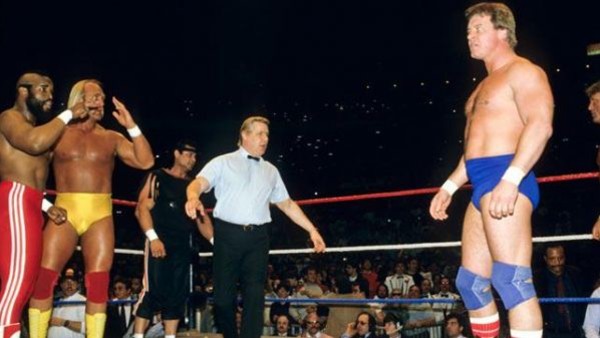How WWF Got So Big

The inaugural WrestleMania was held on 31 March 1985. Studded with pop culture icons such as Muhammad Ali, Liberace, and a returning Cyndi Lauper, McMahon threw everything into the event. With a near 20,000 strong audience in Madison Square Garden, as well as over one million viewers in theatres across the US on closed-circuit television, the investment in WrestleMania paid off.
From there, WWF began riding a wave of popularity across the nation. Featuring more gimmicks and characters, WWF was able to build a successful merchandising department generating more profit for the company. Throughout the 1980s, the federation began creating more pay-per-view events, following with VHS releases, effectively diversifying their business structure.
After using celebrities to leverage their position in the national conscious, WWF’s 1980s popularity peaked at the third instalment of their flagship event. WrestleMania III, contested in front of a disputed 93,173 audience, was legendary. No longer needing to piggyback on outsider stars, the event was carried by the main event between the superstar, Hulk Hogan, and the incomparable, André the Giant. The show featured a wide array of wrestling spectacle from the praised athletic display between Randy Savage and Ricky Steamboat to the understated appearance of Alice Cooper in the Jake Roberts and Honky Tonk Man bout. The show’s appeal was based solely on what WWF could offer, and it made over $11,000,000 on the night.
WWF transitioned into a successful global company by the end of the decade. The colourful chaos of the federation entered the international consciousness once WWF secured rights to air on European satellite television providers. Successful live tours followed and established their dominance in these new markets. McMahon Jr’s World Wrestling Federation began making even more money, and WWF became synonymous with wrestling.